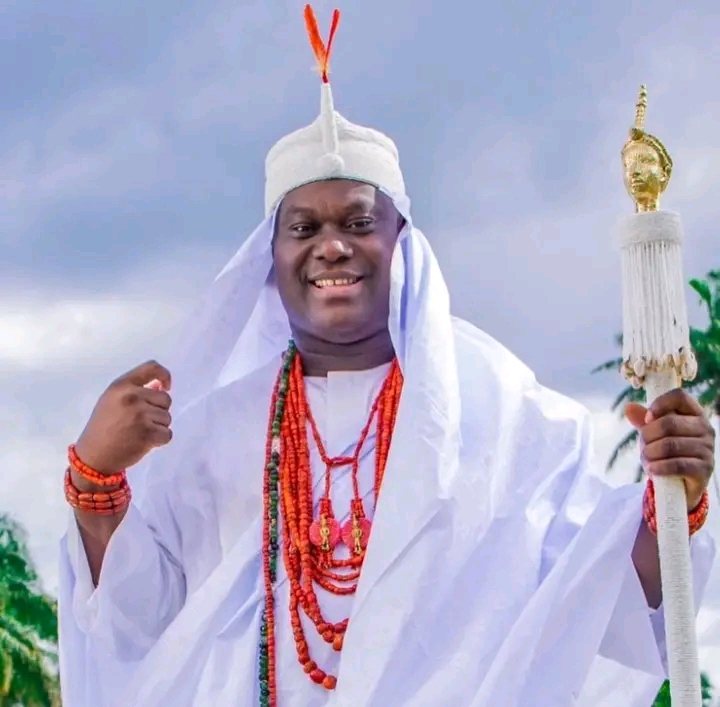A prominent legal practitioner, Pelumi Olajengbesi Esq., has waded into the recent controversy surrounding the conferment of the title Okanlomo of Oodua on Chief Dotun Sanusi by the Ooni of Ife, Oba Adeyeye Enitan Ogunwusi.
The lawyer described the alleged ultimatum issued by the Alaafin of Oyo to the Ooni as “gratuitous, constitutionally unsound, and an affront to Yoruba heritage.” He argued that the move to challenge the Ooni’s decision was both historically and legally untenable.
According to Olajengbesi, the Ooni acted well within his lawful and cultural prerogatives. “In law, we ask whether an action is intra vires—within lawful authority. The Ooni of Ife acted squarely within his lawful, ancestral, and cultural prerogatives. These prerogatives are inherent, sui generis, and incapable of usurpation by any other stool,” he explained.
The legal expert drew from jurisprudental principles, likening the role of the Ooni to a Grundnorm—the foundational source of legitimacy in Yoruba civilisation. “In the Nigerian state, the Constitution is the Grundnorm. In Yoruba civilisation, Oòdua itself constitutes the Grundnorm, with the Ooni as its custodian and living embodiment. To challenge the Ooni is tantamount to questioning the Grundnorm itself, which is a juridical absurdity,” he said.
READ ALSO: Royal Rift: Alaafin rebukes Ooni over ‘Okanlomo of Yorubaland’ title
Olajengbesi further emphasised that the idea of Oòdua predates colonialism and the coinage of “Yoruba” as an ethnolinguistic identity. He noted that while the Alaafin’s political authority historically derived from conquest and expansion, the Ooni’s legitimacy is primordial, spiritual, and universal, extending across all Yoruba kingdoms.
He added: “Every Yoruba monarch, including the Alaafin, holds legitimacy only insofar as his crown symbolically connects back to Odùduwà and Ife. Ile-Ife is the cradle of existence of the Yoruba people and the foundation of their collective legitimacy.”
Drawing parallels with global institutions, the lawyer compared the Ooni’s supra-territorial role to that of the Pope in Christendom and the Emperor in Japan, arguing that the Ooni’s authority transcends geographical or political boundaries.
On the legal dimension, Olajengbesi dismissed claims that judicial pronouncements had ever vested pan-Yoruba authority exclusively in the Alaafin. He noted that no Supreme Court judgment or statute recognises the Alaafin as the sole custodian of Yoruba legitimacy. “Successive governments, both colonial and post-colonial, have consistently recognised the Ooni of Ife as a monarch of pan-Yoruba stature,” he stressed.
He cited the legacy of past Oonis, including Oba Adesoji Aderemi—who served as the first African Governor of the Western Region—and Oba Okunade Sijuwade, as historical evidence of the Ooni’s unrivalled position as rallying point for Yoruba unity.
Regarding the specific title conferred on Chief Dotun Sanusi, Olajengbesi insisted that it was a symbolic honour well within the Ooni’s remit. “The conferment of the title Okanlomo of Oodua on Chief Sanusi is not a political office or military command; it is a cultural honour that celebrates fraternity, excellence, and unity within the Yoruba nation,” he argued.
Chief Sanusi, widely respected for his entrepreneurial achievements and contributions to community development, was described as a deserving recipient whose recognition further reinforces Yoruba identity and solidarity.
In conclusion, Olajengbesi affirmed that the Ooni of Ife’s action was entirely lawful, legitimate, and consistent with history and tradition. “The law is clear, history is unambiguous, and jurisprudence is settled. The Ooni of Ife has not usurped power; he has exercised it intra vires. His competence to confer honours symbolic of unity is beyond reproach,” he said.
He added that the Alaafin of Oyo should be “properly advised” not to escalate tensions but to recognise the Ooni’s timeless and unimpeachable authority as the ancestral father of the Yoruba people.



